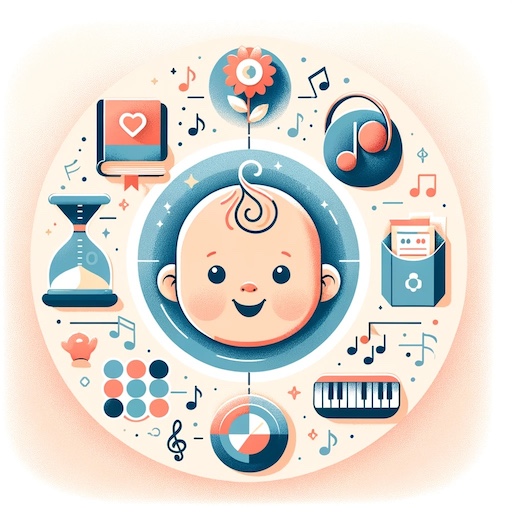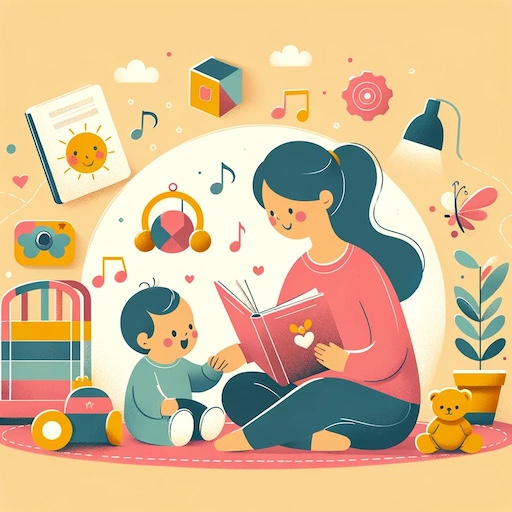Important Milestones For Your Baby By Two Months
Introduction
Understanding the developmental milestones of our children is more than an exercise in parenting; it's an embrace of their individual growth journey. These milestones—a collective observation of how a child plays, learns, speaks, acts, and moves—offer profound insights into their developmental strides. It’s essential to appreciate these milestones as guidelines rather than strict benchmarks, recognizing the beautiful variance in how children unfold in their own time.
The Centers for Disease Control and Prevention (CDC) not only provides updated milestones but also equips parents and caregivers with the Milestone Tracker, a mobile app designed to support the tracking of a child’s developmental progress.
As we explore the developmental markers for a two-month-old baby, let us approach with a heart full of anticipation for the unique story each child has to tell, guided by these milestones but always open to the individual pace at which they grow.

Key Milestones for 2-Month-Old Babies
Breaking down the milestones into categories provides clarity and allows us to understand the comprehensive development of a 2-month-old baby. Here's what to expect:
Social/Emotional Milestones
- Begins to calm down when spoken to or picked up.
- Shows interest in faces, particularly in looking at your face.
- Displays happiness or excitement upon seeing familiar people.
- Smiles in response to interaction.
Language/Communication Milestones
- Makes sounds that are not crying.
- Reacts to loud sounds, showing early auditory sensitivity.
Cognitive Milestones
- Follows objects visually, indicating early visual tracking.
- Shows interest in toys for several seconds, demonstrating early attention focus.
Movement/Physical Development Milestones
- Holds head up when lying on the tummy, showing early muscle strength.
- Moves both arms and legs, indicating motor coordination.
- Begins to open hands briefly, showing early motor control.
Exploring Key Milestones Further: Insights into Your 2-Month-Old’s Development
Social/Emotional Development Explained
At two months, your baby begins to show the first signs of social interaction. This includes calming down more easily with familiar voices and being soothed through physical contact. The delight in their eyes when they see familiar faces, or the emergence of a smile in response to your smile, are milestones that underscore the growing bond between you and your baby. For example, you might notice your baby's face light up when you approach their crib, a fundamental sign they recognize and are comforted by your presence.
Understanding Language/Communication
Your baby's early gurgles are more than just adorable sounds; they're the beginnings of language. Reacting to loud noises not only shows auditory development but also that they are starting to differentiate between sounds. Engaging with your baby by mimicking these sounds can encourage more vocalizations, turning a simple coo into a foundational conversation. For instance, when your baby makes a sound, mimic it back, and wait for them to respond, fostering their early communication skills.
Cognitive Development at Two Months
Cognitive milestones include your baby's ability to track movement and show interest in objects. This is the groundwork for attention and problem-solving skills later on. You might notice your baby following a colorful toy with their eyes or staring intently at a mobile above their crib. These are signs of their developing focus and the early stages of cognitive processing, as they learn to interact with their environment.
Physical Development and Movement
Physical milestones for a two-month-old are truly remarkable. Holding their head up during tummy time not only strengthens their neck muscles but also lays the foundation for future motor skills. Similarly, the coordination seen as they move their limbs is not just physical growth but the beginning of understanding cause and effect—moving arms and legs can change their perspective and reach. Encouraging tummy time and providing sensory toys can support these physical milestones. For example, a soft toy that makes a sound when pressed can motivate them to reach and press, enhancing both their motor skills and their understanding of cause and effect.

When You Have Concerns About Your Baby's Development
While tracking developmental milestones provides valuable insights into your baby's growth, it's crucial to remember that these milestones are not set in stone. Most children (about 75%) reach these milestones by a certain age, but many healthy and happy babies develop at their own unique pace. Some may achieve certain skills more quickly, while others take a bit longer, and that's perfectly normal.
As the person who knows your baby best, your observations are invaluable. When speaking with your child’s doctor, consider discussing:
- Activities and routines you and your baby enjoy together.
- Your baby's favorite ways to play and interact.
- Any behaviors or skills that seem unusual or concerning to you.
- If your baby seems to have lost any skills they once had.
- Any special healthcare needs your baby might have, including if they were born prematurely.
It’s always better to address any concerns early. If you're worried about your baby's development or if they're not meeting the milestones as expected, don't hesitate to talk to your pediatrician. They can provide guidance, support, and, if necessary, further evaluation to ensure your baby gets the best start possible. Remember, you're doing a great job, and seeking advice or clarification is part of ensuring the well-being of your precious little one.
Empowering Your Baby’s Growth: Essential Parenting Tips
As the primary influence in your baby's life, you—alongside siblings, grandparents, and other caregivers—play a pivotal role in their early learning and brain development. The foundation of love, care, stimulation, and nutrition is vital for your baby's growth. Here are some strategies to nurture your baby's development effectively:
- Engage Positively: Celebrate your baby's attempts at communication with excitement and joy. Smiling, talking back, and showing excitement when they vocalize encourages them to continue exploring verbal exchanges.
- Stimulate Their Senses: Regularly talking, reading, and singing to your baby enhances their language skills and understanding of the world around them.
- Provide Comfort and Security: Cuddling and holding your baby reinforces their sense of security. Responding to their needs won't spoil them but will foster a deep emotional bond.
- Be Present and Attentive: Minimizing distractions, such as screen time, when with your baby allows you to be fully responsive to their needs and signals.
- Self-Care is Key: Looking after your own well-being makes the challenges of parenting more manageable and enjoyable.
- Read Your Baby’s Cues: Learning to interpret your baby's signals helps you understand their needs, whether they're seeking interaction or need some downtime.
- Encourage Physical Development: Tummy time is essential for developing neck strength and motor skills. Ensure a safe environment for these activities, especially during awake periods.
- Nutritional Needs: Stick to breast milk or formula for the first six months, recognizing signs of hunger and fullness to cater to your baby's nutritional needs accurately.
- Establish Routines: Consistent routines for sleeping and feeding help your baby learn and adapt to the world around them.
- Foster Calmness: Soothing your baby through soft speech, gentle rocking, or singing can mitigate stress and foster a calm environment.
- Limit Screen Time: Prioritize real-time interactions over digital ones to support your baby's learning from real-world experiences.
- Interactive Play: Use everyday activities like feeding, dressing, and bathing as opportunities for playful interaction and learning.
- Encourage Self-Soothing: Helping your baby discover ways to self-soothe, such as through sucking on fingers or a pacifier, supports their emotional regulation.
Remember, each baby is unique, and what works for one may not work for another. Stay attuned to your baby’s needs and development, and don't hesitate to consult with healthcare professionals for personalized advice and support.

Summary and Resources
In the early stages of life, your baby embarks on a remarkable journey of growth and development. From their first smile to the excitement of hearing your voice, each milestone is a window into their evolving world. As caregivers, it's our privilege and responsibility to support them through these milestones, armed with knowledge, patience, and love. While each child grows at their own pace, understanding and tracking developmental milestones can help ensure they're on the right path, and prompt early action if needed.
Embrace your role as your baby's first teacher. Through positive engagement, creating comforting routines, and stimulating their senses, you lay the groundwork for their healthy development. Remember, you're not alone on this journey. Tools like the CDC's Milestone Tracker app provide valuable guidance and reassurance, making it easier to monitor your baby's progress and celebrate each new achievement.
Visit the CDC Milestone Tracker page to learn more and download the app. Together, we can ensure every child enjoys the best possible start in life.